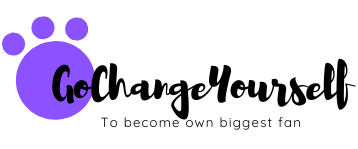In today’s fast-paced world, success isn’t just determined by IQ or technical skills—it’s also about how well you understand and manage your emotions. Emotional Intelligence is the secret ingredient that fuels personal and professional growth.
By harnessing this power, you can improve your relationships, boost your decision-making skills, and navigate life’s challenges with confidence. In this comprehensive guide, we’ll dive into 8 game-changing strategies that will help you unlock the hidden power of emotional intelligence and transform your life.
Table of Contents
1. Understand the Essence of Emotional Intelligence
Before you can transform your life, it’s essential to understand what Emotional Intelligence really means. Emotional Intelligence (EI) is the ability to recognize, understand, manage, and effectively use your own emotions as well as those of others.
It involves self-awareness, self-regulation, motivation, empathy, and social skills. When you develop EI, you lay the foundation for better interpersonal interactions and smarter decision-making.
Actionable Tip: Start by reflecting on your current emotional state. Consider keeping a daily journal where you note your feelings, what triggered them, and how you responded. This practice will serve as a baseline for further improvement.
2. Cultivate Self-Awareness
Self-awareness is the cornerstone of Emotional Intelligence. By understanding your emotions, you can identify your strengths, weaknesses, triggers, and patterns of behavior. This deeper insight allows you to control your reactions instead of being controlled by your emotions.
Actionable Tip: Set aside 10 minutes each day for self-reflection. Ask yourself questions like, “What emotions did I experience today?” and “How did these feelings impact my decisions?” Use mindfulness apps or guided meditation sessions to enhance your self-awareness.
3. Develop Self-Regulation Skills
Self-regulation is all about managing your emotions effectively, especially in stressful situations. Instead of reacting impulsively, you learn to pause, evaluate the situation, and choose a more thoughtful response. This not only reduces stress but also builds trust in both personal and professional relationships.
Actionable Tip: When you feel overwhelmed, practice deep breathing exercises or count to ten before responding. Over time, this will help you develop a habit of calm and measured reactions, enhancing your overall emotional control.
4. Enhance Empathy for Deeper Connections
Empathy—the ability to understand and share the feelings of others—is a vital component of Emotional Intelligence. Empathetic individuals can form deeper, more meaningful relationships by appreciating other perspectives and responding with compassion.
Actionable Tip: During conversations, practice active listening. Focus fully on the speaker without planning your response. Reflect on their words and ask clarifying questions to show that you genuinely care. This simple approach can lead to stronger, more empathetic relationships.
5. Master the Art of Effective Communication
Effective communication is more than just speaking clearly; it involves expressing your emotions appropriately and interpreting the feelings behind others’ words. By mastering this art, you can navigate conflicts, influence others positively, and create an atmosphere of mutual respect.
Actionable Tip: Work on your non-verbal cues, such as eye contact, body language, and tone of voice. Consider recording your practice conversations or seeking feedback from friends and colleagues. This will help you adjust your communication style to be both assertive and empathetic.
6. Build Resilient Interpersonal Relationships
Strong relationships are the backbone of personal and professional success. When you combine Emotional Intelligence with effective communication and empathy, you can build and maintain relationships that provide support, collaboration, and lasting connections.
Actionable Tip: Regularly check in with your loved ones, colleagues, or mentors. Ask open-ended questions about their day and feelings. Small acts of kindness and genuine interest can significantly strengthen your interpersonal bonds and foster an environment of trust.
7. Embrace Mindfulness for Stress Management
Mindfulness is a powerful tool for enhancing Emotional Intelligence. It involves being present in the moment and accepting your thoughts and feelings without judgment. This practice helps reduce stress, improve concentration, and promote a balanced emotional state.
Actionable Tip: Incorporate mindfulness into your daily routine through meditation, yoga, or simply spending a few minutes each day focusing on your breathing. Over time, you’ll notice a significant improvement in your ability to manage stress and maintain a calm, focused mindset.
8. Commit to Continuous Learning and Growth
Developing Emotional Intelligence is not a one-time task—it’s an ongoing journey of self-improvement. Committing to continuous learning means always seeking ways to enhance your emotional skills, whether through books, courses, workshops, or personal experiences.
Actionable Tip: Set specific, measurable goals for your emotional growth. This might include reading one book on emotional intelligence every month, attending a seminar, or even enrolling in an online course. Keep track of your progress and adjust your strategies as needed to ensure steady growth.
Conclusion: Transform Your Life with Emotional Intelligence
Unlocking the hidden power of Emotional Intelligence can truly transform your life. By understanding and managing your emotions, you pave the way for enhanced personal relationships, improved professional performance, and a more resilient, adaptable mindset.
These 8 game-changing strategies—cultivating self-awareness, developing self-regulation, enhancing empathy, mastering communication, building strong relationships, embracing mindfulness, and committing to continuous learning—form an actionable roadmap that you can follow to achieve lasting change.
Remember, the journey to mastering emotional intelligence is ongoing. Every small step you take towards understanding and improving your emotional skills adds up, leading to significant, positive changes over time.
Start today by implementing these strategies and witness the transformative power of emotional intelligence in every aspect of your life.
Embrace this journey with an open mind and a willing heart. The power to transform your life is already within you—it’s time to unlock it!
FAQ:
Q1: What is Emotional Intelligence?
A1: Emotional Intelligence is the ability to recognize, understand, manage, and effectively use your own emotions and the emotions of others.
Q2: How does Emotional Intelligence differ from IQ?
A2: Unlike IQ, which measures cognitive abilities, Emotional Intelligence focuses on managing emotions and interpersonal skills, playing a crucial role in personal and professional success.
Q3: Why is Emotional Intelligence important in today’s world?
A3: Emotional Intelligence is essential today because it enhances communication, improves relationships, reduces stress, and fosters better decision-making in both personal and professional settings.
Q4: How can I start improving my Emotional Intelligence?
A4: Begin by practicing self-awareness through daily journaling, reflection, and mindfulness exercises to recognize your emotions and understand your behavioral patterns.
Q5: What are some key components of Emotional Intelligence?
A5: The core components include self-awareness, self-regulation, motivation, empathy, and social skills, all of which contribute to effective emotional management and interpersonal interactions.
Q6: How does self-awareness contribute to Emotional Intelligence?
A6: Self-awareness allows you to identify your emotions, understand your triggers, and assess your strengths and weaknesses, which is essential for managing reactions and making informed decisions.
Q7: What is self-regulation and how does it improve Emotional Intelligence?
A7: Self-regulation is the practice of controlling and managing your emotional responses, enabling you to handle stress and conflicts more effectively by responding thoughtfully rather than impulsively.
Q8: Why is empathy a crucial part of Emotional Intelligence?
A8: Empathy helps you understand and share the feelings of others, fostering deeper connections and more meaningful relationships by appreciating different perspectives.
Q9: How can I enhance my empathy skills?
A9: Enhance empathy by actively listening during conversations, asking clarifying questions, and putting yourself in others’ shoes to better understand their emotions and viewpoints.
Q10: What role does effective communication play in Emotional Intelligence?
A10: Effective communication involves expressing your emotions clearly and interpreting non-verbal cues, which helps resolve conflicts, build trust, and create a respectful dialogue.
Q11: How can I build better interpersonal relationships using Emotional Intelligence?
A11: By practicing active listening, showing genuine interest, and responding empathetically, you can cultivate trust and strengthen relationships in both personal and professional environments.
Q12: What are some mindfulness practices that help improve Emotional Intelligence?
A12: Mindfulness practices such as meditation, yoga, and focused breathing exercises help you remain present, reduce stress, and gain better control over your emotional responses.
Q13: How does journaling help in developing Emotional Intelligence?
A13: Journaling provides a space for reflection, allowing you to track your emotions, recognize patterns, and identify triggers, which is fundamental for self-awareness and growth.
Q14: Can Emotional Intelligence be developed over time?
A14: Yes, Emotional Intelligence can be developed and improved through continuous practice, self-reflection, mindfulness, and by actively seeking feedback and learning from experiences.
Q15: What actionable steps can I take to manage stress using Emotional Intelligence?
A15: To manage stress, practice deep breathing, engage in regular mindfulness exercises, and adopt self-regulation techniques that allow you to pause and respond thoughtfully rather than react impulsively.
Q16: How can I use deep breathing exercises to improve my emotional control?
A16: Deep breathing exercises help calm your mind by slowing down your heart rate and reducing tension, giving you the space to process your emotions before responding to stressful situations.
Q17: What are some benefits of mastering Emotional Intelligence in my career?
A17: Mastering Emotional Intelligence in your career can lead to improved leadership, better teamwork, enhanced problem-solving, and stronger relationships with colleagues and clients.
Q18: How do non-verbal cues affect Emotional Intelligence?
A18: Non-verbal cues like body language, eye contact, and tone of voice are critical in conveying emotions and intentions, playing a significant role in effective communication and relationship building.
Q19: How does continuous learning contribute to improving Emotional Intelligence?
A19: Continuous learning through reading, courses, and practical experiences keeps you updated on new strategies and insights, ensuring that your emotional skills remain sharp and effective.
Q20: What are the long-term benefits of developing Emotional Intelligence?
A20: Over time, enhanced Emotional Intelligence leads to improved personal relationships, better mental health, career advancement, and a more resilient approach to life’s challenges.
-
10 Superfoods for Healthy Eyes That Boost Your Vision
Let’s be honest — we don’t always treat our eyes the way they deserve. From binge-watching late-night shows to scrolling endlessly through social media, our vision takes a lot. The problem? We often forget how crucial eye health really is… until something starts to go wrong. The good news? You don’t need to wait for…
-
Importance of Taking Risks for Success
Let’s face it—taking risks is scary. Whether it’s quitting a job, starting a business, or even just speaking up in a meeting, the idea of stepping outside what’s familiar can feel downright uncomfortable. But here’s the thing: most people who achieve real success didn’t get there by playing it safe. They took leaps. They bet…
-
What to do After Layoff ? | 7 Steps to Bounce Back Stronger and Smarter
Losing your job is one of those moments that just hits differently. It’s not just about the paycheck—it’s about routine, identity, even pride. One minute you’re gearing up for a busy quarter, and the next, you’re trying to figure out what the heck just happened. If you’re sitting there wondering what to do after layoff,…







